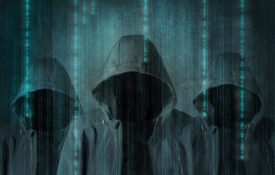-
How Feelings of Disconnection and Lack of Control Fuel Conspiracy Beliefs
Analysis – Conspiracy theories have always been a part of society, offering explanations – sometimes simple, often elaborate – for complex events. Some have uncovered genuine conspiracies, such as the Watergate scandal. Most lack substance but Visit Page
-
This Chatbot Pulls People Away From Conspiracy Theories
Shortly after generative artificial intelligence hit the mainstream, researchers warned that chatbots would create a dire problem: As disinformation became easier to create, conspiracy theories would spread rampantly. Now, researchers wonder if chatbots might also offer Visit Page
-
Why People Become Overwhelmed by Conspiracy Theories — and How To Help Them
“I pray you will not be a journalist for the deep state,” Albert Samaha’s mother told him when he began working as a reporter for BuzzFeed News. As her son was publishing research on COVID-19 Visit Page
-
Why People Latch on to Conspiracy Theories, According to Science
Insurgents swarmed the U.S. Capitol on January 6 to create chaos and defy legislators who had gathered to certify electoral votes. The presidential election, they say, was stolen—a belief encouraged by a powerful and trusted leader. Visit Page
-
A Theory About Conspiracy Theories
More than 1 in 3 Americans believe that the Chinese government engineered the coronavirus as a weapon, and another third are convinced that the Centers for Disease Control and Prevention has exaggerated the threat of Visit Page
-

APS Backgrounder Series: Psychological Science and COVID-19: Conspiracy Theories
What does psychological science have to say about conspiracy theories, especially during the COVID-19 pandemic? [May 27, 2020] Visit Page

